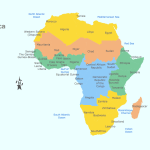KNBS (Kenya National Bureau of Statistics) had organized a half-day workshop for the producers and suppliers of CGD (Citizen-Generated Data) and the relevant stakeholders to inaugurate the criteria for validating it and participants also were sensitized on its implementation. The workshop took place at KICC on 17th June 19, 2022, from 9:00 am to 1:00 pm with Polycom Development Project in attendance as an NGO. Other participants were various CSOs and partners like SDG-Kenya Forum, Global Partnership for Sustainable Development Data (GPSDD), UN Women, Partnership in Statistics for Development in the 21st Century (PARiS 21), and NGO’S Co-ordination Board, Ministry of Health (MOH) ad State Department of Gender.
As a result of a collaboration between KNBS with CSOs, it was inevitable in harnessing CGD so as to fulfil existing gaps in planning and monitoring development initiatives and programs.
CGD are data produced by people or organizations to tackle and monitor issues around them and to drive or demand change on issues that affect them. In Kenya’s Strategy for Development of Statistics 2019/20-2022/23, KNBS has committed to exploring the use of CGD to address the existing data gaps in monitoring progress and informing policy. CGD has also been considered in the development of the Kenya Statistical Quality Assurance Framework (KeSQAF). Kenya is the first country to acknowledge CGD as a data source.
KeSQAF is aimed at promoting the use of best practices in the production of statistics within the National Statistics System (NSS) and beyond. Among other things, the framework outlines the criteria for validating CGD which is an alternative source of data to fill data gaps, particularly, for reporting on Sustainable Development Goals (SDGs). The KeSQAF was launched in May 2022 and the Bureau has embarked on its implementation. The CSOs together with KNBS and partners have been working together and developed a quality criteria for developing CGD.
Quality Criteria.
Building on international accepted quality framework, KNBS will use the elements that are most important in the national context and that best suit the needs and realities. These criteria will be used in assessing the quality of CGD as fit for use for official reporting. The criteria are:
- Need.
- Interpretability and clarity.
- Credibility.
- Relevance.
- Timeliness.
- Accessibility.
- Methodological soundness.
- Accuracy.
Assigning Score to the Quality Criteria.
Data is subjected to a rating system through a score allocation matrix that has been created. It will be important that data from Non-State Actors will be subjected to a quality gateway before KNBS can dedicate resources towards scoring using the Score Allocation Matrix (SAM). The scores are:
3 – High.
2 – Medium
1 – Low.
0 – Not acceptable.
Minimum Threshold.
For CGD to qualify for use by KNBS, It must meet the following minimum quality level/threshold:
- Must pass all the quality gateway dimensions.
- They may not score 0 (not acceptable) for any of the listed dimensions.
- The average score must be at least 1.5 points (=total points divided by the number of criteria applied.
Why CGD in Kenya?
- KNBS Strategic Plan and Kenya Strategy for the Development of Statistics (KSDS) identified Data Quality as one of its strategic focus in the plan period. Addressing data gaps is one of the strategies for ensuring data quality.
- Data gaps are to be closed by exploring the use of alternative data sources (g. CGD) and by adopting data quality assessment and assurance frameworks (KeSQAF).
- There is increasing demand for data for monitoring SDGs and other development initiatives.
- Managing scarce resources-duplication of resources.
- There is, therefore, need to take advantage of the data revolution and to modernise the National Statistical System
Expectations from the CSOs on the collaboration.
- Support and collaboration.
- Methodologies to avoid duplications.
- Implementation of a roadmap.
- Capacity building.
- Mechanisms on collaboration on the financial aspect.
- Prioritizing on gender-inclined SDGs.
Remarks.
- CGD is expected to assist in the production of good data on gender.
- Proper advocacy on quality gender data production.
- PARIS is supporting KNBS in ways on how to engage with CSOs.
- Quality data can bring good change.
- This is a way of bridging communities, non-state actors and KNBS.
- NGOs Coordination Board are beneficiaries of data from various NGOs as they compile and report annually on the developments they have made and also to know if they aligned with the nation’s development agenda.
- CGD will make data collected evidence-based in the gender arena.
- We lack more data on what women/girls go through in their everyday life and CGD will help with that.
- Citizens want prioritization of their issues.
- Data collected are never quantitative; they are stories not backed by data.
Technical working committee on alternative data sources.
- A committee will be formed according to sectors. They will:
- Validate the quality of data.
- Keep on reviewing the criteria.
- Identify the gaps that exist.
- A liaison between the Bureau and the CSOs.
- Building Capacity.
Recommendation.
We should use the Quality criteria on our research purposes which will work as self-assessment making sure that our data is of quality and fit for use. This will address the existing data gaps in monitoring progress and informing policy. Quality data will also play a critical role in helping us address the issues around the SDGs we champion.






